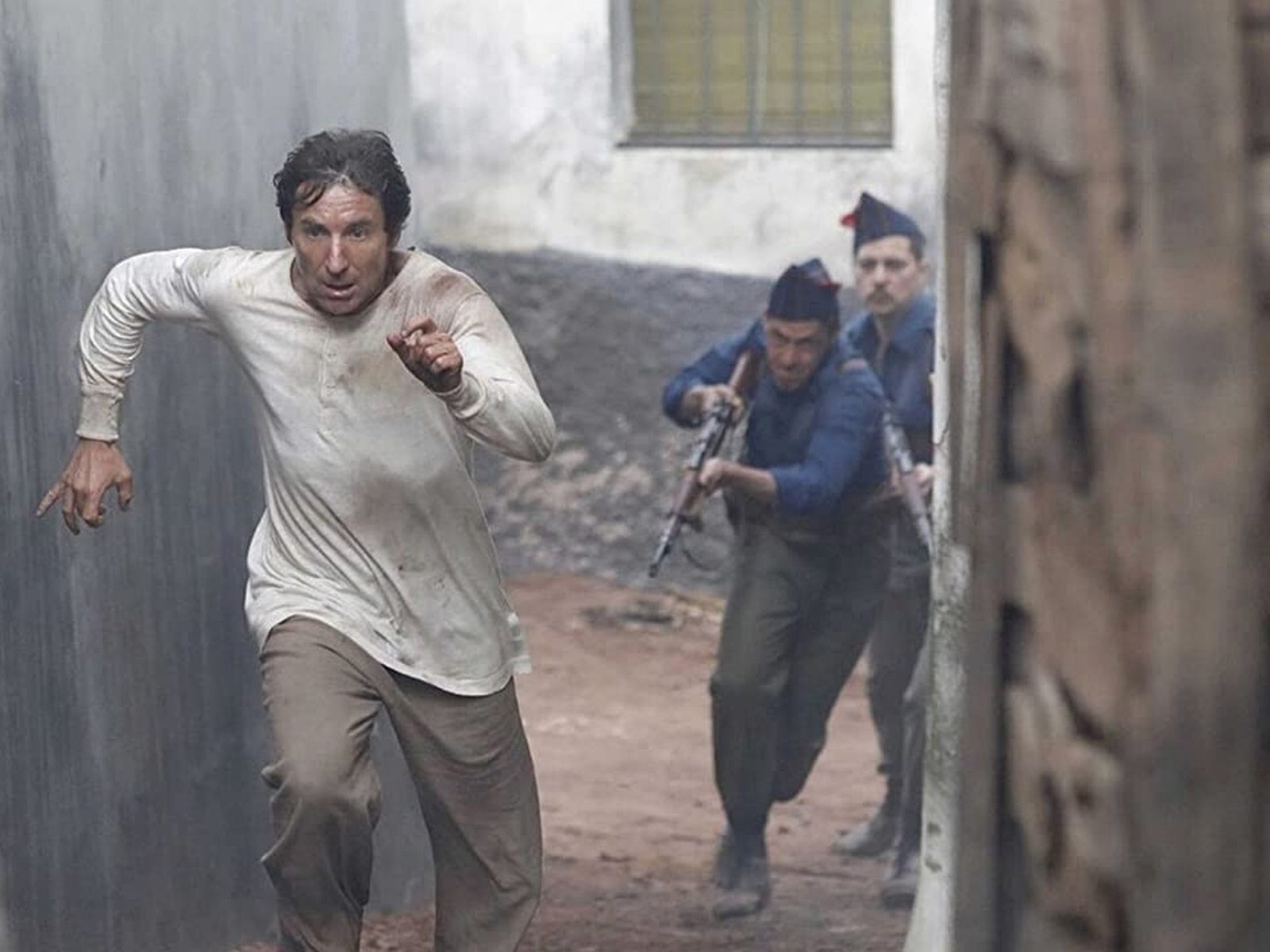
- Golden Globe Awards
The Endless Trench (Spain)
A small village in Huelva, Andalusia, Spain, 1936. Higinio (Antonio de la Torre) and Rosa (Belen Cuesta) have been married only for a few months when the Civil War breaks out. Higinio, a socialist sympathizer, afraid of possible reprisals from the fascist uprising, decides to use a hole dug in his own house as a temporary hideout. His wife pretends he ran away, while secretly taking care of him. The idea is that, as soon as the war ends and the Republic is reinstated, Higinio will be able to come out and, even though his neighbors may still want him dead, he´ll at least get to leave town and go live elsewhere. Of course, Higinio has no way of knowing that his country is at the very beginning of a long and dark chapter in its history, so he is determined to wait out fascism, first under the floorboards and then in a double-wall his wife and father-in-law build specifically to hide him. There, Higinio must survive isolation and tedium.
Through an episodic structure, we accompany Higinio over the course of those 33 years. We will see his evolution and all the states he passes through. His initial panic that his neighbor might discover him, his growing obsession with not making the slightest noise, the routine of being confined, his impotence and frustration at not being able to do anything to prevent the harassment suffered by his wife, the hope that fascism will end soon, the resulting disappointment followed by profound resignation, apathy, illness, loneliness, and above all, the fear of being discovered.
“Fear is a metaphor for all those who had to live in hiding, not only physically but psychologically”, said Aitor Arregi, one of the three directors of the film, in an interview during the San Sebastian Film Festival. “The film is a testament to the fragility of peace and that hatred can erupt into torrents that cannot stop”, said Jon Garaño, his co-director. “We wanted to put the ‘moles’ on the front line of history while also creating an allegory about fear and the effect it has on people. This metaphorical and psychological element was more appealing to us than making a purely historical civil war film,” added José Mari Goenaga, the film’s third director.
Rosa and Higinio´s story is a fictitious one, but it is historically true. After amnesty was granted, in the late 1960s, the stories of hundreds of people who had lived a life like theirs – in solitude, fear and secrecy – surfaced.
The Endless Trench is the first feature film co-directed by Aitor Arregi, Jon Garaño and José Mari Goenaga, who have been working together for over 15 years with their production company, Moriarti. The first two feature films, Loreak, (Spain´s Oscar entry) and 80 Egunean (which won over 30 international awards) were directed by Garaño and Goenaga. The third feature film, Handia, which won the Special Jury Award at the 65thThe Endless Trench (La Trinchera infinita) received the FIPRESCI prize, the Silver Shell for Best Director, the Best Screenplay award and the Irizar Basque film award at the 67th